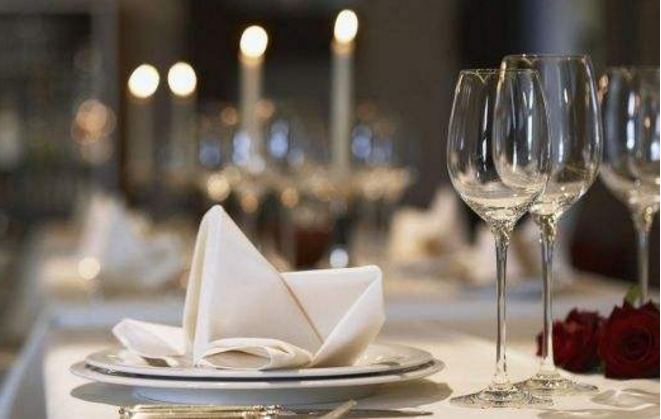
Different countries have different customs. Now, let’s have a look at their different table manners.
In Ireland, it’s considered a rule to go to the bar to bring back drinks for your entire table. Generally, everyone in the group should get up to offer up a round at some point whether you’re asked to or not.
In Italy, it’s sometimes considered rude to ask for anything that isn’t offered to you while dining out.
It’s OK to add a little extra salt or pepper to your plate as long as the condiments(佐料) are already on the table in Portugal. But asking a waiter to bring you salt and pepper is considered an offense to the chef’s seasoning(调味) skills.
In some countries like the US, it can be considered rude to make sounds when you chew or swallow your food. But in Japan, it’s a way to show your host or chef that you enjoyed the meal.
When in France, sharing the bill with fellow diners should be avoided when possible. You’re expected to offer to pay the entire bill or someone else is expected to do so. Of course, according to French Today, there are some examples where sharing the bill is OK, like when dining out with a large group of people or with coworkers.
If you’re used to cleaning your plate, you might want to consider not doing so when dining in Colombia. It’s considered rude to leave an empty plate because it’s as if you’re telling your host that he or she didn’t give you enough food.
1.What is considered a rule in Ireland?
A To ask for anything that isn't offered to you.
B To ask a waiter to bring you salt and pepper.
C To make sounds when you chew or swallow your food.
D To get drinks for the whole table from the bar
解析:选D。细节理解题。根据第二段In Ireland, it’s considered a rule to go to the bar to bring back drinks for your entire table.可知在爱尔兰的酒吧给同桌的所有人买酒是一种礼节,故选D。
2.Why is it rude to ask for salt or pepper in Portugal?
A Because it is an offense to the chef.
B Because people there don’t like salty food.
C Because it will make the taste worse.
D Because too much salt is bad for health.
解析:选A。细节理解题。根据第四段最后一句But asking a waiter to bring you salt and pepper is considered an offense to the chef's seasoning skills.可知在葡萄牙向厨师要盐和辣椒是对厨师的调味技能的侮辱,故选A。
3.You can share the bill in France when___________.
A eating out with your family.
B eating out in an expensive restaurant.
C eating out with a large group of people.
D eating out with your best friends.
解析:选C。细节理解题。根据第六段最后一句Of course, according to French Today, there are some instances where splitting the bill is OK, like when dining out with a large group of people or with coworkers.可知和很多人出去吃饭以及和同事出去吃饭的时候可以采取AA制,故选C。
4.In which country can you make sounds when eating?
A In Italy.
B In France.
C In Japan.
D In America.
解析:选C。细节理解题。根据第五段最后一句But in Japan, it's a way to show your host or chef that you enjoyed the meal.可知在日本吃饭时可以发出声音,那意味着很享受这一顿饭,故选C。
5.What does an empty plate mean in Colombia?
A It means the guest doesn’t like the food.
B It means the host doesn’t offer enough food.
C It means the guest wants more food.
D It means the host should clean all the plates.
解析:选B。细节理解题。根据最后一段最后一句It's considered rude to leave an empty plate because it's as if you're telling your host that he or she didn't give you enough food.可知在哥伦比亚空盘子意味着主人食物没准备够,故选B。